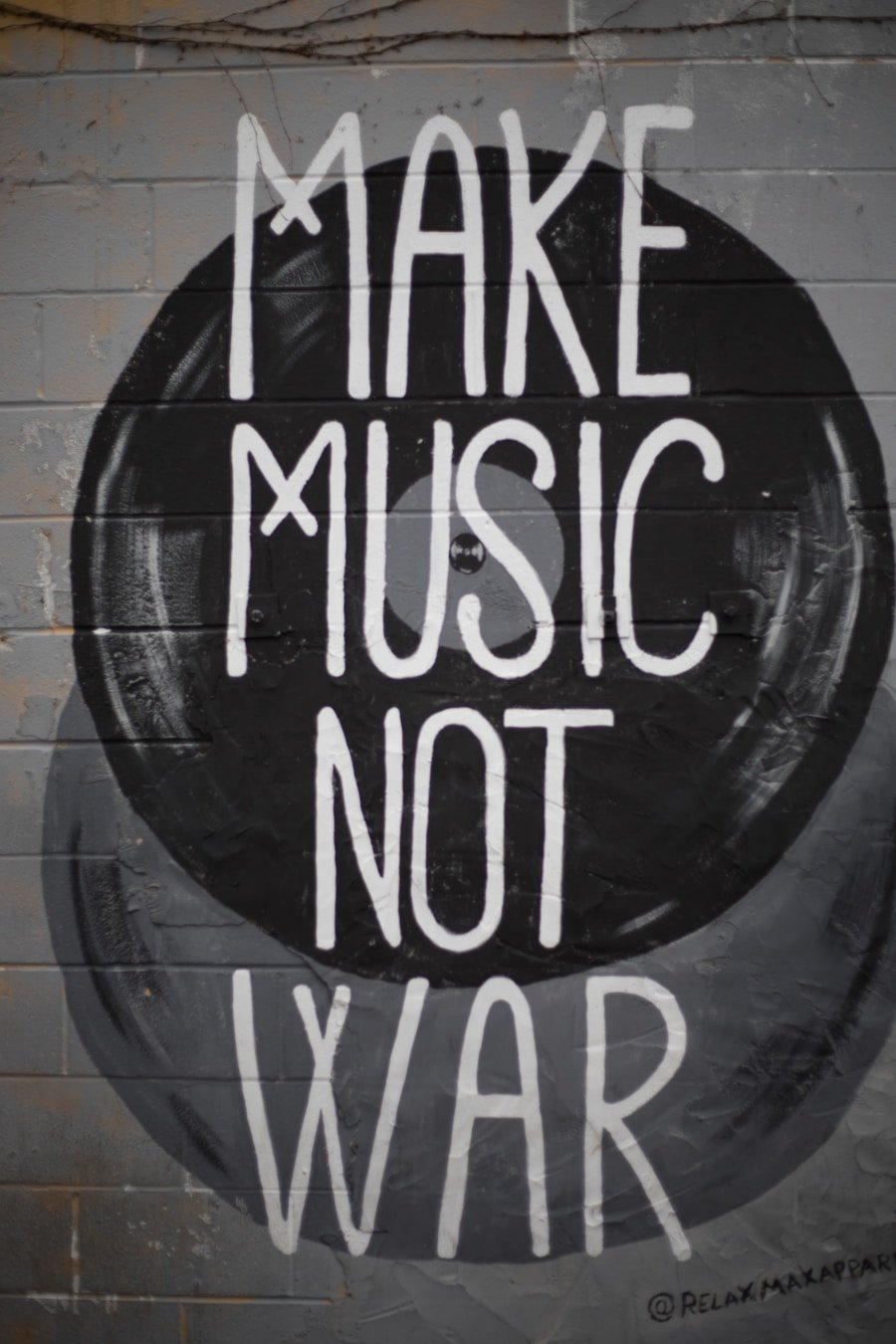In the dynamic landscape of the music industry, marketing serves as a crucial pillar that supports artists, labels, and the overall ecosystem. You might think of marketing as merely promoting an album or a single, but it encompasses much more than that. It involves crafting a narrative around an artist, building a brand, and creating a connection with the audience.
This multifaceted approach is essential for artists to stand out in a saturated market where countless new talents emerge daily. By understanding the role of marketing, you can appreciate how it shapes not only the careers of individual musicians but also the industry as a whole. Marketing in the music industry is about more than just selling records; it’s about storytelling and engagement.
You have to consider how an artist’s image, sound, and message resonate with potential fans. This requires a deep understanding of target demographics and market trends. Effective marketing strategies can elevate an artist from obscurity to stardom, making it imperative for musicians and their teams to invest time and resources into developing comprehensive marketing plans.
Whether through traditional media or innovative digital platforms, the right marketing approach can create buzz and anticipation around new releases, tours, and merchandise.
Key Takeaways
- Marketing plays a crucial role in promoting and selling music, creating a connection between artists and their audience.
- Effective marketing can significantly impact an artist’s success and fame, helping them reach a wider audience and achieve greater recognition.
- Ethical considerations in music industry marketing are important, as they can affect the reputation and credibility of artists and the industry as a whole.
- Marketing has a strong influence on how audiences perceive music, shaping their preferences and attitudes towards different genres and artists.
- Social media has become a powerful tool in music industry marketing, allowing artists to connect with fans and promote their music on a global scale.
- Branding and image are key elements in music marketing, helping artists establish a unique identity and stand out in a crowded industry.
- Marketing plays a crucial role in generating revenue for the music industry, driving sales, streaming, and other income streams for artists and companies.
- The future of music industry marketing will likely be shaped by trends and innovations in technology, digital platforms, and consumer behavior.
The Impact of Marketing on Artist Success and Fame
When you look at successful artists, it’s easy to attribute their fame to talent alone. However, marketing plays an equally significant role in their rise to prominence. You may have noticed that some artists seem to dominate the charts not just because of their musical abilities but also due to strategic marketing campaigns that amplify their reach.
A well-executed marketing strategy can transform an artist’s career trajectory, turning them into household names almost overnight. This is particularly evident in how major labels invest heavily in marketing campaigns for their top acts, ensuring that they receive maximum exposure across various platforms. Moreover, marketing can create a sense of community around an artist.
When you engage with an artist’s brand through social media, merchandise, or live events, you become part of a larger narrative. This connection fosters loyalty among fans, which is invaluable for an artist’s long-term success. You might find yourself following an artist not just for their music but for the lifestyle and values they represent.
This emotional connection is often cultivated through targeted marketing efforts that resonate with fans on a personal level, making them feel invested in the artist’s journey.
Ethical Considerations in Music Industry Marketing

As you delve deeper into the music industry, it becomes clear that ethical considerations are paramount in marketing practices. The line between effective promotion and manipulation can sometimes blur, leading to questions about authenticity and integrity. You may have encountered instances where artists or labels have exaggerated claims about an album’s success or misrepresented an artist’s persona to fit market trends.
Such practices can undermine trust between artists and their fans, ultimately harming both parties in the long run. Ethical marketing in the music industry involves transparency and honesty. You should be aware that fans are increasingly savvy and can easily spot disingenuous tactics.
As an artist or marketer, it’s essential to build your brand on authenticity rather than deception. This means being truthful about your music, your influences, and your journey. When you prioritize ethical considerations in your marketing strategy, you not only foster a loyal fan base but also contribute to a healthier music industry overall.
The Influence of Marketing on Audience Perception of Music
| Marketing Strategy | Effect on Audience Perception |
|---|---|
| Social Media Promotion | Increased awareness and engagement with the music |
| Music Video Release | Enhanced visual representation of the music leading to better understanding and connection |
| Brand Partnerships | Association with reputable brands leading to positive perception and credibility |
| Live Performances | Direct interaction with the audience leading to stronger emotional connection |
Marketing significantly shapes how audiences perceive music and artists. You might not realize it, but the way an album is marketed can influence your expectations and enjoyment of the music itself. For instance, if a record label promotes an album as groundbreaking or revolutionary, you may approach it with heightened anticipation, which can color your listening experience.
This phenomenon highlights the power of marketing in framing narratives around music and artists. Moreover, marketing strategies often dictate how genres are categorized and perceived by audiences. You may notice that certain styles of music are marketed as “trendy” or “authentic,” which can affect your perception of what is considered valuable or worthy of attention.
This creates a feedback loop where marketing not only reflects audience preferences but also shapes them. As you engage with different genres and artists, consider how marketing influences your own tastes and perceptions.
The Role of Social Media in Music Industry Marketing
In today’s digital age, social media has revolutionized how music is marketed and consumed. You likely use platforms like Instagram, TikTok, or Twitter to discover new music or connect with your favorite artists. Social media allows for direct interaction between artists and fans, creating a sense of intimacy that traditional marketing methods cannot replicate.
This immediacy enables artists to share their creative processes, personal stories, and behind-the-scenes moments, fostering deeper connections with their audience. Furthermore, social media serves as a powerful tool for viral marketing campaigns. You may have seen songs explode in popularity due to challenges or trends on platforms like TikTok.
These organic marketing strategies can propel lesser-known artists into the spotlight almost instantaneously. As you navigate social media as a fan or creator, consider how these platforms have democratized music marketing, allowing independent artists to reach audiences without relying solely on major labels.
The Power of Branding and Image in Music Marketing

The Artist’s Persona
Branding is a crucial aspect of music marketing that goes beyond just logos or album covers. It encompasses an artist’s entire persona, including their image, how they dress, speak, and present themselves. This persona plays a significant role in attracting fans and building a loyal following.
Standing Out from the Crowd
A strong brand identity helps differentiate an artist from their peers and creates a memorable impression in the minds of listeners. This is especially evident when looking at iconic musicians throughout history, whose branding often transcends their music. For instance, certain artists are associated with specific cultural movements or social issues due to their carefully crafted images.
The Lasting Impact of Branding
The connection between branding and identity is powerful, allowing artists to resonate with audiences on multiple levels. As you explore different artists and genres, pay attention to how branding influences your perception of their music and overall impact on culture.
The Relationship Between Marketing and Music Industry Revenue
The relationship between marketing and revenue generation in the music industry is undeniable. You may not realize it, but effective marketing strategies can significantly boost sales across various revenue streams—album sales, streaming royalties, merchandise sales, and concert ticket sales all benefit from well-planned promotional efforts. When an artist is marketed effectively, they are more likely to attract attention from both fans and industry stakeholders alike.
Moreover, as streaming services continue to dominate the music landscape, the importance of marketing has only grown. You might notice that playlists curated by platforms like Spotify or Apple Music often feature songs that have been heavily promoted through various channels. This highlights how marketing not only drives immediate sales but also influences long-term revenue potential by increasing visibility on these platforms.
As you engage with music as a consumer or creator, consider how marketing strategies impact the financial health of artists and the industry as a whole.
The Future of Music Industry Marketing: Trends and Innovations
As you look ahead to the future of music industry marketing, several trends and innovations are shaping the landscape. One significant trend is the increasing reliance on data analytics to inform marketing strategies. You may have noticed that artists and labels are now using sophisticated algorithms to understand listener behavior better and tailor their campaigns accordingly.
This data-driven approach allows for more targeted marketing efforts that resonate with specific demographics. Additionally, emerging technologies such as virtual reality (VR) and augmented reality (AR) are beginning to play a role in music marketing as well. You might find yourself experiencing immersive concerts or interactive promotional events that enhance your connection with artists and their music.
As these technologies continue to evolve, they will likely open up new avenues for creativity in how music is marketed and consumed. In conclusion, understanding the multifaceted role of marketing in the music industry is essential for anyone involved in this vibrant field—whether you’re an artist, marketer, or fan. By recognizing its impact on success, audience perception, ethical considerations, branding, revenue generation, and future innovations, you can appreciate how integral marketing is to shaping the musical landscape we know today.
